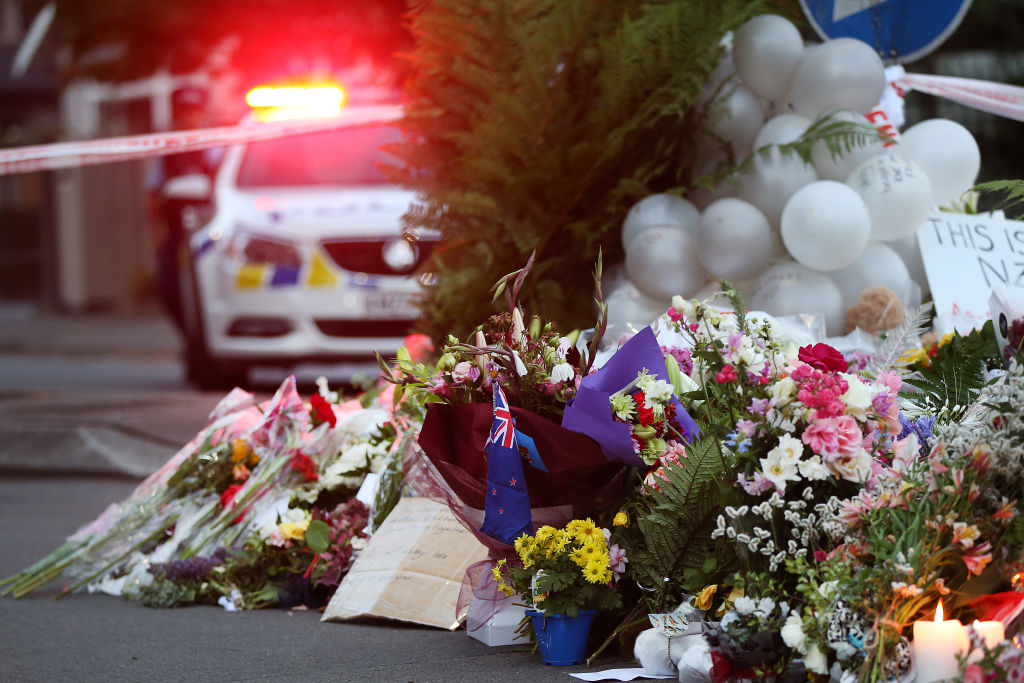
The recently released
Global Terrorism Index finds that deaths from terrorism around the world fell to 13,826 in 2019, a 15% decrease from the previous year and a five-year low. A total of 103 countries showed improvements in their scores, and only 35 showed a deterioration. The report gives us some reasons to be optimistic, and the fact that Australia currently fares well is one of them.
Despite this, Australia, and the West more broadly, must remain alert. One of the more worrying trends in the past five years is the surge in extremist political terrorism. Even though the absolute number of extremist attacks remains low when compared with other forms of terrorism, in North America, Western Europe and Oceania, far-right attacks increased by 250% from 2014 to 2019 and deaths increased by 709%.
Over the same five-year period, data shows that the intensity of far-left terrorism also increased. However, far-right terrorism tends to be more lethal than far-left terrorism, though not as lethal as Islamist terrorism in the West. There were 89 deaths attributed to far-right terrorists in 2019, 51 of which occurred in the Christchurch mosque attacks in New Zealand. In the West, the number of attacks has climbed from four in 2011 to an average of 52 for the past three years.
There are also signs that socioeconomic and political instability are increasing. Over the past decade, measures of societal resilience have been falling in many economically advanced economies, a trend that’s likely to continue during the extended economic downturn caused by Covid-19. If left unchecked, this kind of instability could boost the background conditions for terrorism.
To better understand the underlying societal factors correlated with terrorism, the index deciphers the socioeconomic and political factors associated with higher levels of terrorism in advanced and developing nations. Using structural equations modelling and correlation analysis, the Institute for Economics and Peace assessed the relationship between a large number of socioeconomic indicators and terrorism. In advanced economies, we found that internal conflict, lack of protection of human rights, social disenfranchisement and inequality—especially the youth unemployment rate—are factors with a high correlation with terrorism.
Data supports many of the stories and images of fractured societies we see regularly in the news. Civil unrest is on the rise. Even prior to the widespread demonstrations seen in 2020, social and political instability had been on the rise in the West, with nearly 70 violent demonstrations recorded in 2019, compared with only 19 in 2011. Europe had the largest number of protests, riots and strikes over the period, totalling nearly 1,600 events from 2011 to 2018. There are signs that political violence is becoming more publicly acceptable as the level of polarisation in society grows: polling data from the United States shows a large jump in the proportions of both Democrats and Republicans who feel that violence for political ends is at least partially justified.
Research into global levels of positive peace over the past decade shows that the US has deteriorated substantially in this area, while in Europe the attitudes that underpin peace have deteriorated. Our research into this concept analyses the underlying societal factors that sustain peace and strengthen resilience within a country. In the US, the considerable deterioration has mainly happened over the past six years. Key drivers include an increasingly polarised political debate, growing tensions between socioeconomic or racial groups, and a deterioration in the quality of information available to the public, with opinion and propaganda often masquerading as news. In Europe, economic progress has been made over the past 10 years, but increases in political polarisation and social fragmentation and a deterioration in the quality of information disseminated to the public have also been recorded.
While Western countries must remain on guard, looking at the threat of terrorism from a global standpoint provides worthwhile perspectives. The 10 countries most impacted by terrorism are developing countries, half of which are mired in conflict; they are Afghanistan, Iraq, Nigeria, Syria, Somalia, Yemen, Pakistan, India, Democratic Republic of Congo and the Philippines.
The largest increase in terrorism occurred in Burkino Faso, where deaths rose by 590% between 2018 and 2019. Islamic State has been territorially defeated in the Middle East, but its affiliate groups remain active, with 27 countries recording an attack by IS or one of its affiliates. Sub-Saharan Africa has been hit the hardest and has become the terror group’s new centre of gravity—41% of all IS-related deaths occurred in this part of Africa.
ASPI is hosting the Australia and Asia–Pacific launch of the Global Terrorism Index 2020 at 6 pm AEDT. The annual index, now in its eighth year, is developed by Institute for Economics and Peace and provides comprehensive information on global terrorism trends and patterns over the past 18 years.
This online event will begin with a pre-recorded keynote address from Home Affairs Minister Peter Dutton. Leanne Close, head of ASPI's Counter-Terrorism Program, will then be joined by Steve Killelea, chairman and founder of the Institute for Economics and Peace; Commander Sandra Booth from the Australian Federal Police; Peta Lowe, principal consultant at Phronesis Consulting; and Dr Julian Droogan from Macquarie University to discuss the key findings from the report. Click here to register. Print This Post
Print This Post